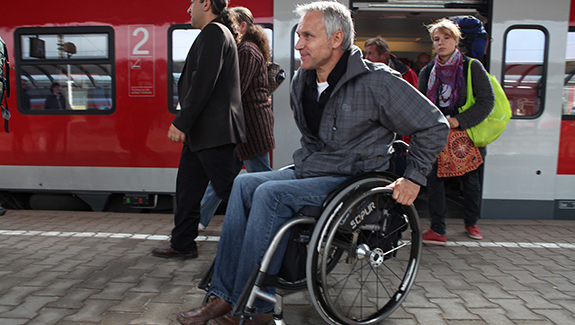Your Guide to Bladder Care
Your bladder function may be impacted by a spinal cord injury. Learn about how you can avoid bladder accidents and issues.

Learn about bladder care after a spinal cord injury.
A spinal cord injury can affect how your bladder functions. Fortunately, there are steps and treatment options you can take to minimize the effects of bladder issues.
Bladder control issues you may experience
The process of urination requires undisturbed communication between the bladder and the brain. That’s why a spinal cord injury can cause changes in the way your bladder works.
Your bladder may empty too frequently or not enough. Your urinary sphincters may also work incorrectly. The way your bladder and sphincters function depends on the location and extent of your injury.
You should know, however, that a bladder that is impacted by a spinal cord injury (a neurogenic bladder) does not usually empty by itself. Consult with your healthcare team for a bladder control programme and treatments that might help. A bladder control programme might include intermittent catheterization, external catheters, and/or medications.
It’s also important to monitor the amount of fluids you drink and stick to a regular schedule for emptying your bladder. And when you empty your bladder, always make sure you finish the job every time.
Your rehab team will help you set up a schedule based on your needs and the amount of fluids you typically drink.
As importantly, make sure to stick to the guidelines and programmes provided by your healthcare team. This will help you prevent accidents, or more serious issues like urinary tract infections. The key is staying vigilant with proper care and attention routines for your bladder.



